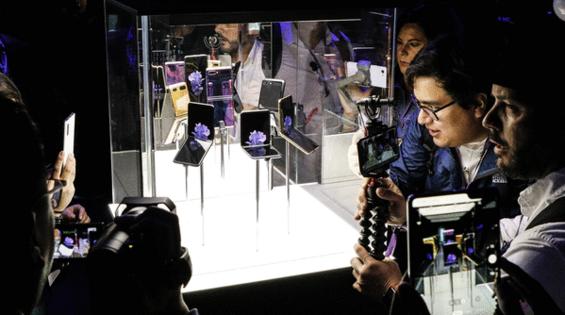Commentary: Gen Z can't save the planet while doomscrolling it dry
Published in Op Eds
Gen Z calls itself the climate generation. We post infographics, hop on Lime bikes instead of calling Ubers, offset flights we still take for weekend getaways and stage walkouts with reusable bottles in hand. But somewhere between our climate optimism and the dopamine hit of another endless scroll, we became part of the problem we were left to solve.
It’s a relief that corporations — including groups like Google, Meta and Microsoft — exist to mask our digital gluttony. They become the public face of environmental harm, letting us believe that climate guilt can be outsourced, as long as someone else is taking the heat.
Last month, a leaked internal document at Amazon showed the company working hard to bury the fact that its data centers consumed a staggering 105 billion gallons of water in 2021 to cool its facilities, outdrinking nearly 1 million homes, or the equivalent of a city “bigger than San Francisco.”
It’s a defining warning that the green economy’s breaking point isn’t just carbon, it’s water. Just in the U.S., data centers consumed more than 211 billion gallons last year, much of it in drought-prone states like Colorado and Arizona. The same pattern is emerging in my native Britain, where in Scotland alone, data centers already consume around 13.5 billion liters of water each year. Regulators warn that continued expansion could deepen Scotland’s projected 240-million-liter daily shortfall in public water supplies by 2050.
This is made worse by our tech addictions. My generation spends nearly six hours a day online, every click powered by the same carbon-intensive process we claim to oppose. We binge Netflix and summon ChatGPT for everything, with AI queries using up to 10 times more energy than a standard online search.
As global tech giants race to build more data centers in some of the driest regions on Earth, they’re worsening a crisis that’s threatening billions who face water shortages. These hubs are often placed inland, where dry air helps protect metal infrastructure from corrosion — an engineering choice that comes at a devastating human cost.
The fallout is already measurable. Data centers worldwide now account for nearly 2% of global freshwater withdrawals, and it’s climbing fast as AI use explodes. Microsoft’s own reporting shows its global water use surged by a third between 2021 and 2022, thanks in large part to AI development. All this while 2 billion people still lack safe drinking water.
If we fight for a green future while refusing to confront the costs of our digital lives, we continue to be part of the problem. And unless we regulate water use, expose corporate emissions and cut our own digital consumption, we will condemn future generations to fight wars over a resource we squandered by scrolling.
At the Climate Change Conference (COP30) in Belém, Brazil, this month I will be fighting to hold Big Tech accountable, starting with transparency. There is still no framework to track corporate water use, to enforce disclosure in drought zones or to include water security in national pledges. Like the warnings included on every pack of cigarettes, AI platforms should show the water and carbon cost of every interaction, making our footprint impossible to ignore.
But that’s only the start. I will urge world leaders to make water use and conservation the next frontier of climate accountability through a global water budget that caps industrial use and finally forces policymakers and corporations to face the limits of a resource they have long treated as infinite.
Real change will never come only from the top, and those in my generation who say Gen Z lacks the institutional power to make it happen are wrong. It was young people who pushed cities from Los Angeles to Jakarta to confront water scarcity through new conservation laws, and who campaigned to ban single-use plastics that choke our seas. And it’s Gen Z activists who took President Trump to court for disregarding and worsening climate change, a case dismissed by a federal judge on procedural grounds despite “overwhelming” evidence.
My generation can no longer hide behind powerlessness when the institutions we once accused of ignoring us are asking us to lead. This includes new and unexpected allies such as faith and civil society groups that are reframing climate action as a moral duty, not a political one. In a world where politics often fails, these organizations reach communities that conventional policy can’t.
I see that in my work with Faith for Our Planet, a global interfaith coalition led by Dr. Mohammad Al-Issa of the Muslim World League. Bringing together scientists, policy experts and other leaders, it turns shared conviction into climate action, and helps young people like me translate ideals into results — from cleaning rivers that sustain their cities to installing solar-powered water pumps in drought-hit villages in Malawi and beyond. It’s proof that young people have more opportunities than ever to turn words into action.
Older generations are already placing us in positions where we can act. The question is whether the rest of us will stop virtue signaling and follow their lead. Will we take arguments offline and admit our lifestyles are counterintuitive to our core beliefs? Because saving the planet won’t arise from another post, but from the courage to log off and act before we stream it dry.
____
Sara Yassi is chair of the UK’s youth delegation to COP30.
©2025 Los Angeles Times. Visit at latimes.com. Distributed by Tribune Content Agency, LLC.
























































Comments